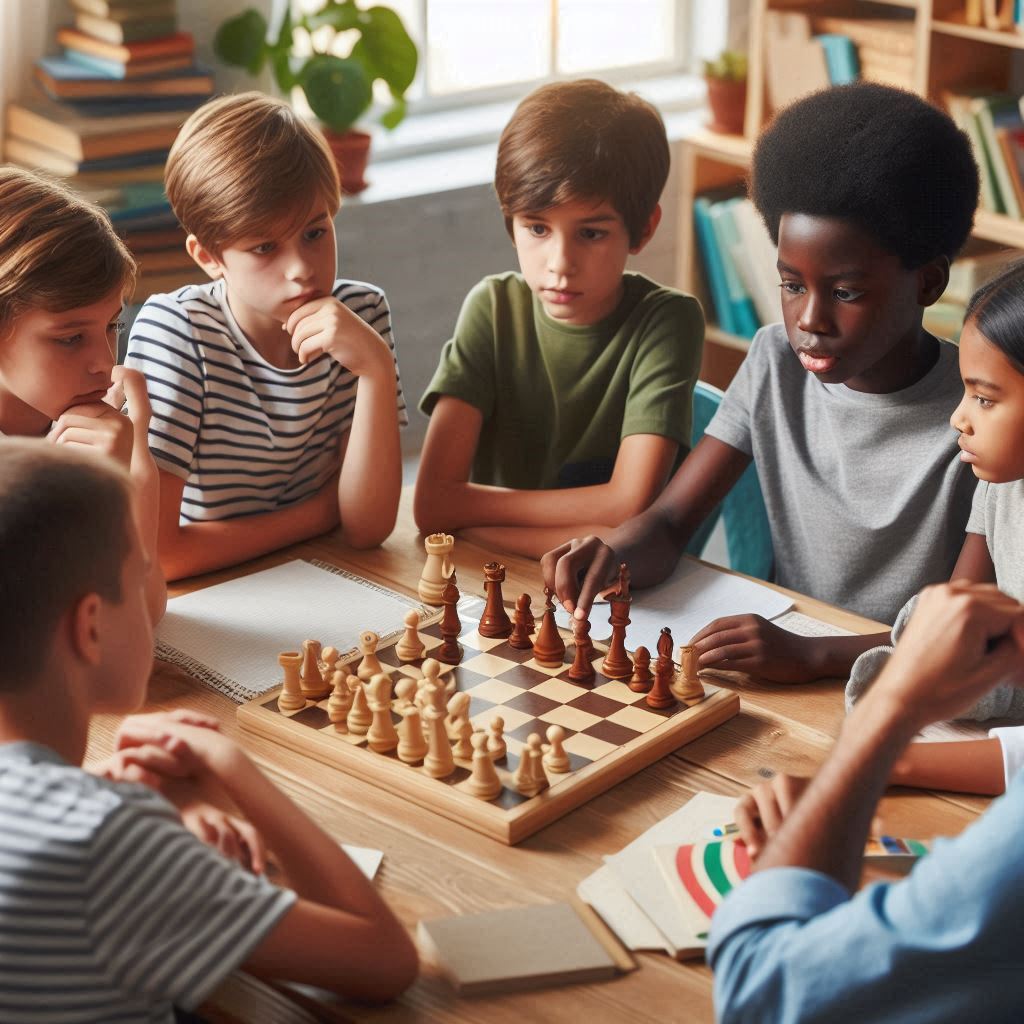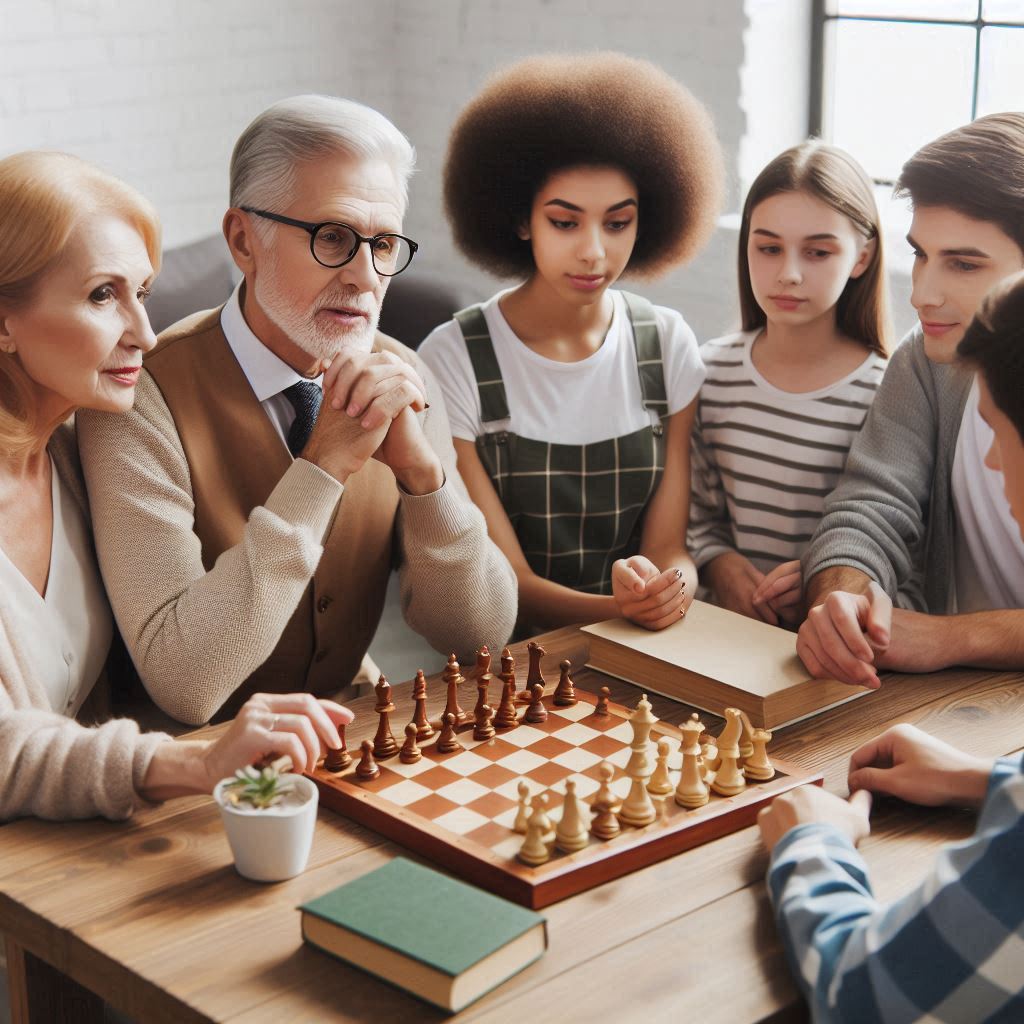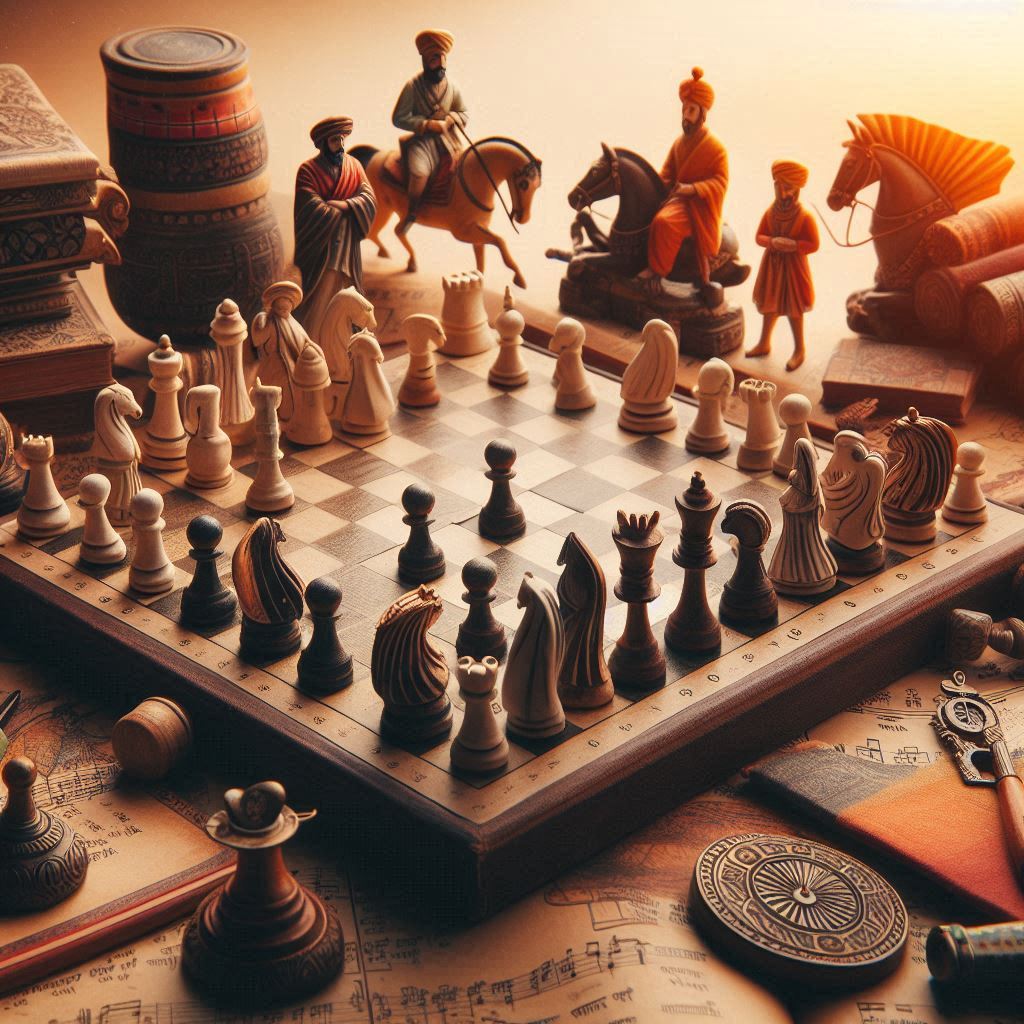Introduction
Chess is more than just a game; it’s a powerful educational tool that offers numerous benefits for children. Learning chess at a young age can enhance cognitive abilities, improve social skills, and boost emotional development. This blog explores the various advantages of introducing chess to kids and how it can positively impact their overall growth.
Cognitive Benefits
Enhancing Problem-Solving Skills
Chess requires players to think ahead, plan strategically, and anticipate their opponent’s moves. This fosters critical thinking and problem-solving skills that are essential in everyday life.
Example:
- Children learn to evaluate different outcomes and choose the best course of action, improving their decision-making abilities.
Improving Memory
Playing chess involves remembering the rules, moves, and strategies, which enhances both short-term and long-term memory.
Example:
- Kids must recall previous games and strategies, which helps strengthen their memory.
Boosting Concentration and Focus
Chess demands continuous concentration and focus. Children must pay attention to the board, think multiple moves ahead, and stay engaged throughout the game.
Example:
- Consistent practice helps kids develop the ability to concentrate for extended periods, which can benefit them in academic and other activities.
Enhancing Creativity
Chess encourages creative thinking. Players must devise unique strategies and solutions to outsmart their opponents.
Example:
- Children learn to think outside the box and develop innovative approaches to challenging situations.
Academic Benefits
Improving Math Skills
Chess and mathematics share several underlying principles, such as pattern recognition, problem-solving, and logical reasoning. Playing chess can enhance mathematical skills and understanding.
Example:
- Kids who play chess often perform better in math due to the game’s emphasis on calculations and strategic thinking.
Enhancing Reading and Comprehension
Chess improves reading and comprehension skills by encouraging children to read and understand the rules, instructions, and strategies.
Example:
- Kids learn to follow complex instructions and comprehend various scenarios, which can improve their reading comprehension.
Promoting Academic Achievement
Research shows that children who play chess tend to perform better academically. The skills developed through chess, such as concentration, problem-solving, and critical thinking, contribute to overall academic success.
Example:
- Chess-playing students often show improved grades and higher test scores in various subjects.
Social and Emotional Benefits
Building Social Skills
Chess is a social game that encourages interaction with others. It helps children develop social skills, such as communication, sportsmanship, and teamwork.
Example:
- Kids learn to interact with opponents, coaches, and teammates, enhancing their social interactions.
Teaching Patience and Discipline
Chess requires patience and discipline. Players must wait for their turn, think carefully before making a move, and maintain focus throughout the game.
Example:
- Children learn the value of patience and the importance of disciplined thinking, which can be applied to other areas of life.
Boosting Self-Esteem and Confidence
Mastering chess strategies and winning games can boost a child’s self-esteem and confidence. Achieving success in chess provides a sense of accomplishment and pride.
Example:
- Kids gain confidence in their abilities and feel proud of their achievements, both in chess and other areas.
Handling Wins and Losses
Chess teaches children how to handle both victories and defeats gracefully. It promotes resilience and the understanding that both winning and losing are part of the learning process.
Example:
- Kids learn to accept losses, analyze their mistakes, and strive to improve, fostering a growth mindset.
Physical and Mental Benefits
Developing Fine Motor Skills
Moving the pieces on the chessboard helps develop fine motor skills and hand-eye coordination.
Example:
- Children improve their dexterity and precision through the physical act of playing chess.
Reducing Stress
Playing chess can be a relaxing and enjoyable activity that helps reduce stress and anxiety. It provides a mental break from daily routines and challenges.
Example:
- Kids find solace and enjoyment in the game, which can help alleviate stress.
Promoting Mental Agility
Chess keeps the mind active and engaged. It promotes mental agility and flexibility, helping children adapt to new situations and challenges.
Example:
- Regular chess play sharpens the mind and enhances cognitive flexibility.
How to Introduce Chess to Kids
Start with the Basics
Begin by teaching the basic rules, piece movements, and the objective of the game. Use simple language and demonstrations to make it easy for children to understand.
Use Fun and Engaging Methods
Incorporate fun and interactive methods to keep kids interested. Use chess puzzles, online games, and interactive apps to make learning enjoyable.
Encourage Regular Practice
Encourage regular practice to help children develop their skills. Set aside dedicated time for playing chess and provide opportunities for friendly matches with family and friends.
Join Chess Clubs and Competitions
Joining a chess club or participating in competitions can provide additional motivation and opportunities for social interaction. It allows children to meet other chess enthusiasts and learn from experienced players.
Praise and Encourage
Offer praise and encouragement to keep children motivated. Celebrate their successes and support them in overcoming challenges.
FAQs
At what age can children start learning chess?
Children as young as 4-5 years old can start learning the basics of chess. However, the ideal age varies depending on the child’s interest and readiness.
How often should kids practice chess?
Regular practice is important for improvement. Aim for at least 2-3 times a week, with each session lasting 30-60 minutes, depending on the child’s age and attention span.
Can chess help with other academic subjects?
Yes, the skills developed through chess, such as problem-solving, critical thinking, and concentration, can positively impact performance in other academic subjects.
Is it necessary to hire a chess coach for kids?
While not necessary, a chess coach can provide structured learning, personalized guidance, and help accelerate the child’s progress.
How can I make chess fun for my child?
Use interactive and engaging methods such as online games, chess puzzles, and friendly matches. Incorporate fun elements and offer rewards and praise to keep the child motivated.
Can chess help with a child’s social skills?
Yes, playing chess encourages interaction with others, teaching communication, sportsmanship, and teamwork. It helps children develop social skills through gameplay and competitions.
Conclusion
Learning chess offers a multitude of benefits for children, from cognitive and academic improvements to enhanced social and emotional skills. By introducing chess to kids, parents and educators can provide a fun and educational activity that fosters overall development. Whether your child is a budding chess prodigy or simply looking for a new hobby, the game of chess can be a valuable and enriching experience.



